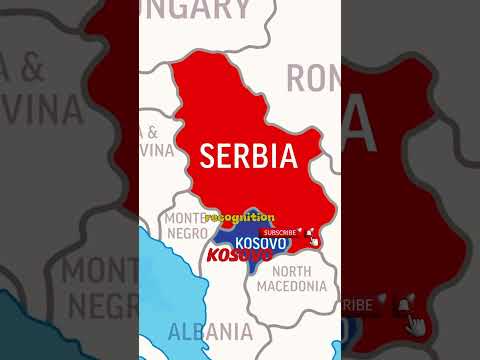
#### Introduction
Kosovo, often mentioned in the context of its political struggles and ethnic complexities, is a fascinating region with a rich cultural tapestry and a dynamic history. As Europe’s youngest country, having declared independence from Serbia in 2008, Kosovo has been navigating the rocky path towards international recognition and internal stability. This article delves into Kosovo’s historical roots, cultural identity, and the contemporary issues it faces today.
#### Historical Background
The history of Kosovo is deeply intertwined with the histories of its neighboring regions in the Balkans. Historically inhabited by various groups, Kosovo has seen numerous battles for dominance and control over its territory. The area has been part of the Roman Empire, Byzantine Empire, and Ottoman Empire throughout different periods.
In the late 20th century, the disintegration of Yugoslavia marked a significant turning point for Kosovo. The majority ethnic Albanians sought independence from Serbian rule, which led to escalating tensions and eventually culminated in the brutal Kosovo War of 1998-1999. NATO’s intervention in 1999 led to Serbia withdrawing its forces, laying down the potentials for future independence which was declared almost a decade later.
#### Cultural Landscape
Kosovo boasts a diverse cultural heritage that reflects various influences through its history. The majority ethnic Albanians share their language (Albanian) and many cultural traits with Albania. However, there are also significant communities of Serbs (who predominantly follow Orthodox Christianity), as well as Bosniaks, Gorani, Romani, Turks, Ashkali and Egyptians contributing to a multiethnic mosaic.
Music and dance are vital components of Kosovar culture with traditional music featuring instruments like çifteli (a stringed instrument) and lahuta (a one-stringed bowed instrument). Kosovar cuisine shares similarities with other Balkan countries; dishes like “flija” (a layered pancake-like dish) and “kebapi” (grilled minced meat) are widely popular.
#### Political Situation
Since declaring independence on February 17th 2008 which is now celebrated as Independence Day every year ,Kosovo has been recognized by over 100 UN member states but not by Serbia or some other countries including Russia and China mainly due to geopolitical interests . Importantly ,it is not yet a United Nations member state .
The relationship between ethnic Albanians and Serbs within Kosovo continues to be strained despite efforts like the Brussels Agreement facilitated by European Union in 2013 aiming towards normalizationof relations between Serbiaand Kosovo through gradual steps .
#### Economy
Kosovo’s economy is one of Europe’s least developed Despite rich mineral deposits including lignite coal ,lead zinc silver nickel etc., it faces challenges such as high unemployment rates especially amongst youth ,lack Of Foreign Investment partly due To Political instability ,and limited access To international markets . Initiatives aimed at improving education And fostering entrepreneurship are seen as crucial steps toward economic revival .
#### Conclusion
Kosovo stands at a crossroads where history meets modernity In spite Of its complex challenges stemming from past conflicts And ongoing disputes over sovereignty Modern Kosovars are striving towards building An inclusive society While embracing their rich cultural legacy As they continue their journey on The world stage towards greater recognition And prosperity .
